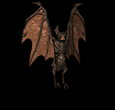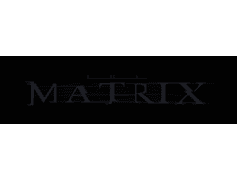Master of Teaching Arts
Master of Teaching Arts @ FIX University "a place for independent learning"
Master of Teaching Arts
The Master of Teaching Arts (M.T.A.) program reflects the School of Urban Education’s long-standing commitment to excellence in teaching. As such, the M.T.A. program is designed to encourage and develop the passion and potential of certified and practicing teachers. Specifically, the M.T.A. was developed to provide practicing K-12 and secondary school teachers the opportunity to study jointly professional education and a specific academic discipline in the liberal arts or sciences. The M.T.A. program is not a degree program leading to initial teacher certification; its purpose is to develop teachers who are leaders in their school communities, who demonstrate advanced knowledge and expertise in their academic subject area, and who prepare their own students to be socially active and moral citizens in this new century.
M.T.A. students are required to complete a final research project as the core educational component of the program emphasizes the teacher as researcher—one who is able to locate, interpret, and incorporate the most recent social science and educational research into their own teaching.
M.T.A. students master the central concepts of their chosen academic discipline, as well as develop the ability to think critically and speak and write clearly in the appropriate genres for their field of study. In addition, they have a foundation in the liberal arts and sciences that allows them to locate their subject area in the appropriate historical, social, and philosophical context. Students in this program are driven by a reasoned, justified, and articulated philosophy of education. They take seriously their role as citizens, servants, and leaders in our society, and realize that they do not know everything they will need to know to be influential teachers and public intellectuals. As a result, the coursework and faculty in the School of Urban Education help students develop the skills and dispositions for lifelong learning. Most of all, as public intellectuals, they recognize and embrace this calling to create an impact beyond the classroom, one that filters into the broader community over the years.
The approved subject areas for the M.T.A. program are art, English, history, theatre, biology, and mathematics. The M.T.A. is a cooperative program between the School of Urban Education and graduate programs in other university departments defined by the student’s academic discipline, therefore students in this program are jointly advised by the Graduate Program Advisors in both the School of Urban Education and in the designated subject area.
Educ 7003, Philosophy of Education,
Educ 7073, History of American Education,
Educ 7083, Educational Policy
Educ 7153, Techniques of Research and Evaluation
Educ 7173, Research Proposal
Educ 7183, Statistical Methods for Research I
Educ 7913, Research and Paper
Electives in either art, English, history, theatre, biology, or mathematics
EDUC 7003 - Philosophy of Education
Selected contemporary problems in education as they relate to the philosophies of idealism, realism, pragmatism, behaviorism, and existentialism. Emphasis upon developing a better understanding of education in all of its ramifications.
EDUC 7123 - Advanced Child and Adolescent Growth and Development
An overview of development of children and adolescents from a constructivist view. A basic premise of the course is that children construct their own knowledge through interaction with their physical and social world. Examines issues of cognitive, linguistic, social, and moral development through the lenses of different cultures.
EDUC 7153 - Techniques of Research and Evaluation
Studies of the nature and functions of research and evaluation featuring characteristics of the most common types of investigation. Includes the study of operationalism, hypothesis formulation and testing, experimental and quasi-experimental design, data collection, theory development and verification, and applications of basic data analytic techniques.
EDUC 7183 - Statistical Methods for Research I
Study of descriptive statistics, probability, sampling theory, parameter estimation, and hypothesis testing. Investigation of chi-square, simple analysis of variance, t-test, bivariate correlation and regression techniques.
The Master of Teaching Arts (M.T.A.) program reflects the School of Urban Education’s long-standing commitment to excellence in teaching. As such, the M.T.A. program is designed to encourage and develop the passion and potential of certified and practicing teachers. Specifically, the M.T.A. was developed to provide practicing K-12 and secondary school teachers the opportunity to study jointly professional education and a specific academic discipline in the liberal arts or sciences. The M.T.A. program is not a degree program leading to initial teacher certification; its purpose is to develop teachers who are leaders in their school communities, who demonstrate advanced knowledge and expertise in their academic subject area, and who prepare their own students to be socially active and moral citizens in this new century.
M.T.A. students are required to complete a final research project as the core educational component of the program emphasizes the teacher as researcher—one who is able to locate, interpret, and incorporate the most recent social science and educational research into their own teaching.
M.T.A. students master the central concepts of their chosen academic discipline, as well as develop the ability to think critically and speak and write clearly in the appropriate genres for their field of study. In addition, they have a foundation in the liberal arts and sciences that allows them to locate their subject area in the appropriate historical, social, and philosophical context. Students in this program are driven by a reasoned, justified, and articulated philosophy of education. They take seriously their role as citizens, servants, and leaders in our society, and realize that they do not know everything they will need to know to be influential teachers and public intellectuals. As a result, the coursework and faculty in the School of Urban Education help students develop the skills and dispositions for lifelong learning. Most of all, as public intellectuals, they recognize and embrace this calling to create an impact beyond the classroom, one that filters into the broader community over the years.
The approved subject areas for the M.T.A. program are art, English, history, theatre, biology, and mathematics. The M.T.A. is a cooperative program between the School of Urban Education and graduate programs in other university departments defined by the student’s academic discipline, therefore students in this program are jointly advised by the Graduate Program Advisors in both the School of Urban Education and in the designated subject area.
EDUC 7003 - Philosophy of Education
Selected contemporary problems in education as they relate to the philosophies of idealism, realism, pragmatism, behaviorism, and existentialism. Emphasis upon developing a better understanding of education in all of its ramifications.
EDUC 7123 - Advanced Child and Adolescent Growth and Development
An overview of development of children and adolescents from a constructivist view. A basic premise of the course is that children construct their own knowledge through interaction with their physical and social world. Examines issues of cognitive, linguistic, social, and moral development through the lenses of different cultures.
EDUC 7153 - Techniques of Research and Evaluation
Studies of the nature and functions of research and evaluation featuring characteristics of the most common types of investigation. Includes the study of operationalism, hypothesis formulation and testing, experimental and quasi-experimental design, data collection, theory development and verification, and applications of basic data analytic techniques.
EDUC 7183 - Statistical Methods for Research I
Study of descriptive statistics, probability, sampling theory, parameter estimation, and hypothesis testing. Investigation of chi-square, simple analysis of variance, t-test, bivariate correlation and regression techniques.
| Fernando Noveno University Department of Art & Art History RecStay Cultural Campus Cali (v) Colombia, South America | © 2019 The Board of Trustees of the Fernando Noveno University. All Rights Reserved |























































































































































